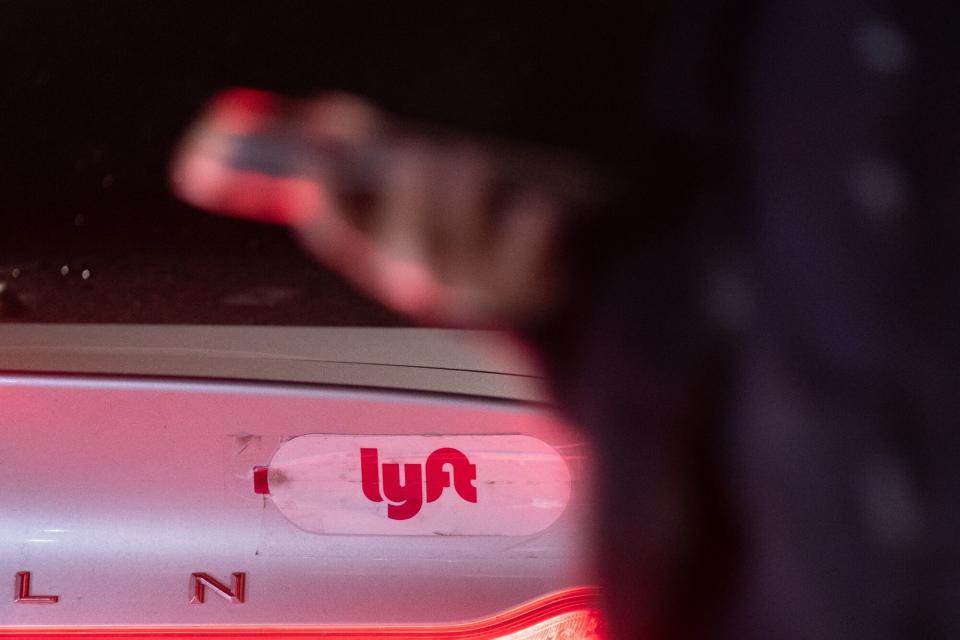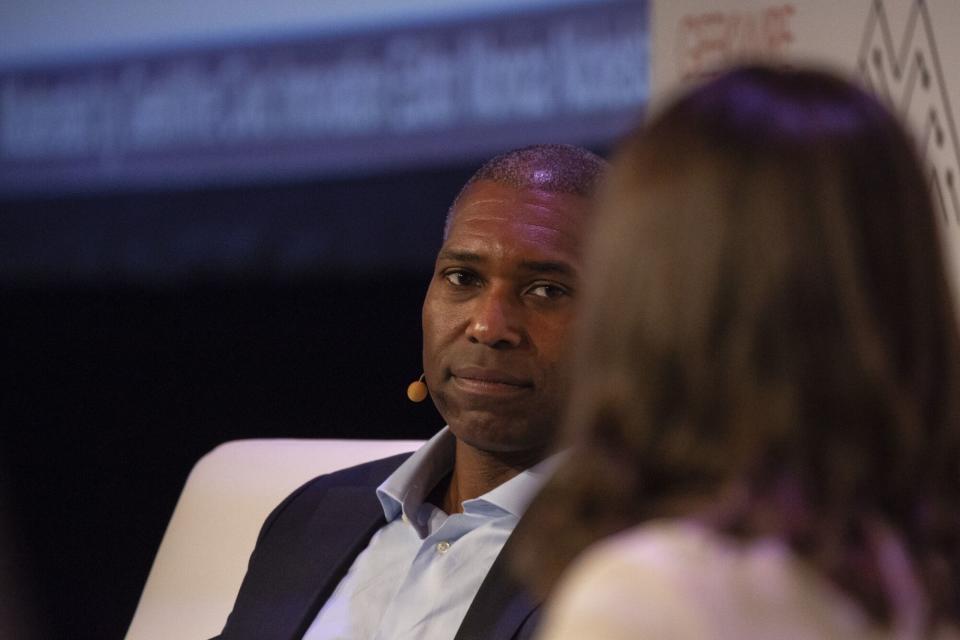Uber, Lyft Reach Deal With Massachusetts on Driver Benefits
(Bloomberg) -- Uber Technologies Inc. and Lyft Inc. agreed to a series of worker benefits to resolve a longstanding state lawsuit in Massachusetts that challenged drivers’ employment status as independent contractors, putting a stop to the companies’ bid to take the issue before voters in November.
Most Read from Bloomberg
Biden's Defiance Has Democrats Fearing They'll Lose White House
CLOs Have Too Much Money and Are Running Out of Things to Buy
Chinese Golf Carts Surging Into US Prompt Pleas for 100% Tariff
The companies also will pay a combined $175 million to the state to settle allegations they violated Massachusetts wage and hour laws, state Attorney General Andrea Campbell said Thursday in a statement. Most of the funds will be distributed as back pay to current and former drivers who were underpaid by the companies, she said.
Uber and Lyft will put in place a minimum wage standard of $32.50 per hour for active driving time, offer paid sick leave and pay a cash stipend for health insurance, among other changes, Campbell said in the statement.
“We’ve resolved historical liabilities by constructing a new operating model that balances both flexibility and benefits,” Uber Chief Legal Officer Tony West said in a separate statement.
Shares of Uber rose 3.2% at 10:04 a.m. in New York on Friday. Lyft’s shares gained 4.7%.
Campbell’s lawsuit against Uber and ride-hailing peer Lyft had been at trial with closing statements expected Friday. The agreement announced Thursday ends the case and “takes away the ambiguity that some of these gig economy companies were facing with the prospect of a significant wage and hour judgment against them,” said Joshua Nadreau, a regional managing partner of Fisher & Phillips LLP, who represents employers in classification cases.
As a result of the settlement, Uber and Lyft will withdraw their support of an industry-backed referendum on the 2024 state ballot that asks voters to cement gig workers’ status as independent contractors.
Uber and Lyft have sought for years to reach deals with unions and lawmakers in the US that would provide drivers with new benefits, while ensuring the firms can still classify them as independent contractors. That designation excludes workers from traditional employment rights such as an hourly minimum wage and the ability to unionize.
The companies are eager to temper classification issues through state-level negotiations as they seek to curb overhead costs to sustain their business model. Uber had hoped to model agreements in Massachusetts and other states on a similar deal it struck with the New York attorney general last year, which also keeps drivers classified as contractors.
Uber’s legal tactics “have effectively prevented any court from actually ruling on the question of driver status, and this case from the attorney general was the one hope to actually get a court ruling on that in Massachusetts,” said Shannon Liss-Riordan, a plaintiffs attorney who brought a landmark worker classification case against Uber in 2013. The settlement means “we’re never going to get that answer, at least not for the foreseeable future,” she said.
The settlement offers immediate relief to drivers, according to a lawyer with the AG’s office who worked on the case. It rules out a lengthy appeal by the companies had the state won the lawsuit to classify drivers as employees, the lawyer said, adding that the benefits negotiated by the parties are more than what the industry-backed ballot initiative proposed.
The deal also clears a major policy hurdle this year for the gig companies, which are awaiting a decision from the California Supreme Court on the fate of a 2020 voter-approved ballot measure that classifies drivers as contractors.
A different referendum, to offer a form of collective bargaining for drivers without designating them employees, is still headed for the ballot. The local Service Employees International Union chapter, which has been pushing that measure, said Thursday it intends to forge ahead.
“The reality is they are going to be treated as independent contractors for the coming years and so we have to deal with that reality,” said Manny Pastreich, president of SEIU Local 32BJ. The attorney general’s agreement is “a healthy step forward,” because it establishes new minimum standards for drivers’ treatment, Pastreich said. “Ultimately, our fight for these drivers is not about minimum standards, but about going beyond that and having a voice to fight for whatever they care about.”
Under the Massachusetts agreement, Uber and Lyft will pay drivers a minimum of $32.50 per hour spent on the way to pick up a passenger and during a ride. That excludes the waiting time between each ride. The companies also will also provide chat support for drivers in multiple languages including Spanish, French and Portuguese.
Lyft said it expects to make its full payment of $27 million in back pay by the first quarter of 2025 and sees no material impact on its 2024 guidance. It accrued $19.1 million in the first quarter of this year for the payment and the remaining amount will be expensed in the second quarter, the company said.
--With assistance from Allie Reed and Josh Eidelson.
(Updates share price.)
Most Read from Bloomberg Businessweek
Japan’s Tiny Kei-Trucks Have a Cult Following in the US, and Some States Are Pushing Back
The FBI’s Star Cooperator May Have Been Running New Scams All Along
RTO Mandates Are Killing the Euphoric Work-Life Balance Some Moms Found
How Glossier Turned a Viral Moment for ‘You’ Perfume Into a Lasting Business
©2024 Bloomberg L.P.

 Yahoo Finance
Yahoo Finance 


